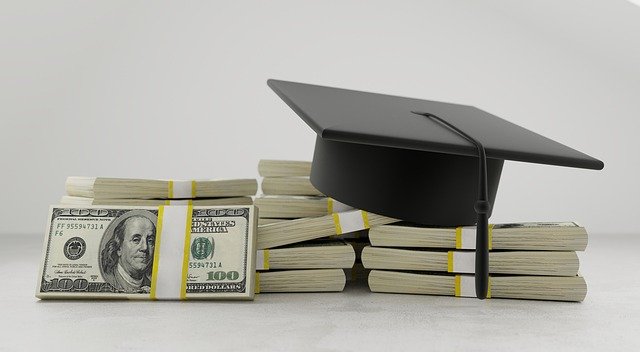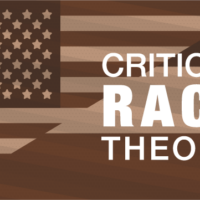

The High Price of Higher Education
College was, simply put, the best four years of my life that I’ll never remember. Oh, I’m sure some meaningful indoctrination took place in there somewhere and that I stumble around the universe with a modicum of that instilled knowledge locked away in the deep recesses of my brain, but college now seems like a vague recollection, a wispy meandering of classes taken and papers written. What probably sticks out more in my prescient memories are the copious funnels and beer chugs, the late-night sessions of Pink Floyd’s Dark Side of the Moon, and a few casual hook-ups that probably never should have happened but definitely did. What I do know, however, is that I am grateful for the experience and that the years I spent in upstate New York have molded me into the person I have become since.
I’m not going to lie and suggest that I worked tirelessly for years afterwards to repay the Faustian debt of burdensome student loans. I was one of the lucky ones. My dad, bless his heart, saw to it that I left school with no financial obligations other than a fairly substantial bar tab at the Old Stone Jug. But don’t shrug that off as just another privileged white kid from the suburbs getting all the breaks. I mean, yes, I am yet another privileged white kid from the suburbs, but my dad wasn’t rolling in the dough, so to speak, He didn’t take vacations during those years, and date nights with my stepmother consisted largely of splitting a pie at the local pizza joint and two tickets at the second-run movie theater. In other words, my dad made sacrifices so that neither I nor my community would be saddled with the burden of paying for my education. And that’s where the issue of President Biden’s plan to erase millions of dollars of student loans comes in.
It makes me sick to my stomach to say this, but I actually have to agree with Mitch McConnell on this one. I do not see how it is fair to the millions of people who have paid off their student debt or the millions more who had never had the financial resources to be able to attend college in the first place should be forced to finance the college education of others. According to 2017 data from the U.S, Bureau of Labor Statistics the average weekly earnings for someone holding a Bachelor’s Degree is just around $1173 as compared to a high school diploma garnering $712. That’s a difference of $460 per week or $5500 a year. Taken over the lifespan of each’s relative earning window (say the ages of 22 to 65), that amounts to a disparity of $236,000 more earned by someone with a college degree. So is it really all that unreasonable to ask them to pay back a portion of those monies derived from an enhanced earnings potential to the taxpayers who subsidized their education?

I will readily acknowledged that this a far more nuanced issue than this polemic suggests, but perhaps that is why I am so leery to embrace the blunt instrument Biden seems to be wielding in wiping out all of this student debt to begin with. Certainly there are folks who choose to employ their education in the betterment of others, taking jobs that may require a college degree but do not offer commiserate compensation. Teachers, social workers, mental health professionals, and substance abuse counselors all knowingly accept lower pay with the understanding that their jobs make their communities better places. And for these civil servants, it would seem a fair gesture of appreciation to have society absorb the cost of the education we all inherently benefit from. But why should I be paying to send yet another web designer to college so that they can make substantially more than me?
But that’s just the problem with how government spends taxpayer money. While I appreciate Biden’s desire to help underprivileged college graduates, he is really robbing high school GED Peter to pay B.A. Paul. Other nations such as the Scandinavian countries allow civil service to be a form of compensation for college educations. Why not require college graduates to perform some years of community-based work in order to offset the cost of their college education? Instead of creating a plan that would incentivize people putting those degrees to work within their respective communities, we seem mired in the same throwing of money at the problem that doomed the Covid relief packages and the PPP loans that were doled out indiscriminately like that neighbor that just leaves a bowl of candy out on Halloween night.
Because in the end, the real problem here isn’t just the millions of dollars already borrowed and spent, but the ever-rising costs of college education itself, and this plan does absolutely nothing to address that. The average yearly cost of a public college is just over $25k and double that for private universities. And yes, as a parent of two college-hopeful teenagers, I did just throw up in my mouth typing that last sentence. Instead of hurling boatloads of cash in some willy-nilly fashion at people who already have college degrees, why not take a serious look at what can be done to stem skyrocketing tuition costs that consistently outpace inflation? Why not use our resources to make college more affordable in the first place? But hey- what do I know? I just have a college degree…
Steven Craig is the author of the best-selling novel WAITING FOR TODAY, as well as numerous published poems, short stories, and dramatic works. Read his blog TRUTH: In 1000 Words or Less every THURSDAY at www.waitingfortoday.com



